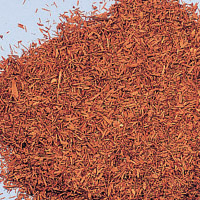health guides
Yohimbe
 © Martin Wall
© Martin WallParts Used & Where Grown
Yohimbe is a tall evergreen forest tree native to southwestern Nigeria, Cameroon, Gabon, and the Congo. The bark of this African tree is used medicinally. There are concerns, however, that the tree may be endangered due to over-harvesting for use as medicine.
- Reliable and relatively consistent scientific data showing a substantial health benefit.
- Contradictory, insufficient, or preliminary studies suggesting a health benefit or minimal health benefit.
- For an herb, supported by traditional use but minimal or no scientific evidence. For a supplement, little scientific support.
Our proprietary “Star-Rating” system was developed to help you easily understand the amount of scientific support behind each supplement in relation to a specific health condition. While there is no way to predict whether a vitamin, mineral, or herb will successfully treat or prevent associated health conditions, our unique ratings tell you how well these supplements are understood by the medical community, and whether studies have found them to be effective for other people.
For over a decade, our team has combed through thousands of research articles published in reputable journals. To help you make educated decisions, and to better understand controversial or confusing supplements, our medical experts have digested the science into these three easy-to-follow ratings. We hope this provides you with a helpful resource to make informed decisions towards your health and well-being.
This supplement has been used in connection with the following health conditions:
| Used for | Amount | Why |
|---|---|---|
Erectile Dysfunction | 5 to 10 drops three times per day, under a doctor's supervision | Yohimbe appears to increase blood flow and dilate blood vessels. |
Obesity | Yohimbe extract providing 5 mg of yohimbine four times per day | Yohimbine, a nervous system stimulant found in yohimbe bark, may help weight loss by raising metabolic rate, reducing appetite, and increasing fat burning. |
Athletic Performance | Refer to label instructions | Yohimbine has shown an ability to stimulate the nervous system, promote the release of fat from fat cells, and affect the cardiovascular system. |
Depression | Refer to label instructions | Yohimbine (the active component of yohimbe) inhibits monoamine oxidase and therefore may be beneficial in treating depression. |
Traditional Use (May Not Be Supported by Scientific Studies)
Historically, yohimbe bark was used in western Africa for fevers, leprosy, and coughs.1 It has also been used to dilate pupils, for heart disease, and as a local anaesthetic. It has a more recent history of use as an aphrodisiac and a hallucinogen.
Copyright © 2024 TraceGains, Inc. All rights reserved.
Learn more about TraceGains, the company.
The information presented by TraceGains is for informational purposes only. It is based on scientific studies (human, animal, or in vitro), clinical experience, or traditional usage as cited in each article. The results reported may not necessarily occur in all individuals. Self-treatment is not recommended for life-threatening conditions that require medical treatment under a doctor's care. For many of the conditions discussed, treatment with prescription or over the counter medication is also available. Consult your doctor, practitioner, and/or pharmacist for any health problem and before using any supplements or before making any changes in prescribed medications. Information expires December 2024.


 We are proud to announce that
We are proud to announce that  As the market evolves, customers increasingly request a wider variety of omega-3 options for their lipid...
As the market evolves, customers increasingly request a wider variety of omega-3 options for their lipid...  Maintaining healthy glucose levels is crucial for preventing metabolic conditions like diabetes,...
Maintaining healthy glucose levels is crucial for preventing metabolic conditions like diabetes,...  Looking at formulating a new vitamin blend? Discover
Looking at formulating a new vitamin blend? Discover 







































